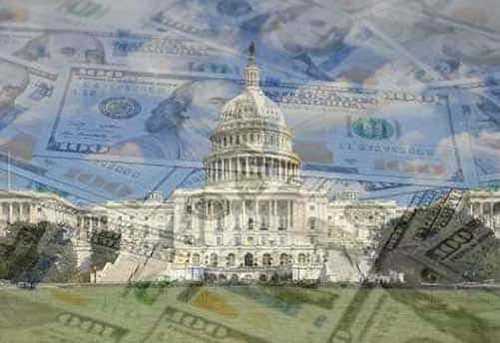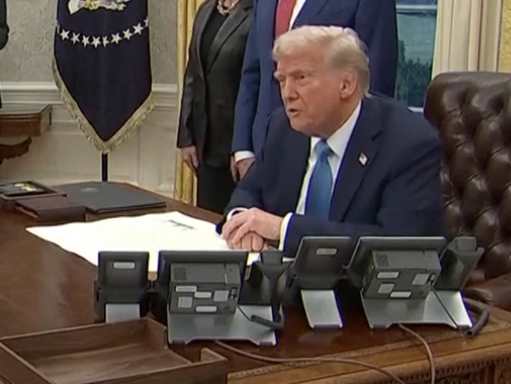“Congress has a choice—they can either extend a failed policy or create tax reform that actually works for Main Street and communities.”
As the Trump administration and congressional Republicans pursue trillions of dollars in new tax giveaways for wealthy individuals and corporations, economists and pollsters this week are warning about how devastating the GOP’s plan would be for small businesses and working families.
There Will Be Pain is the matter-of-fact title of a Thursday report from Josh Bivens, chief economist at the Economic Policy Institute (EPI). It details how extending the expiring provisions from the tax law that Republican lawmakers passed and Trump signed in 2017 “will have painful trade-offs for the U.S. economy and most Americans.”
“The U.S. ‘fiscal gap’—how much taxes need to be raised or spending cut to keep public debt stable as a share of gross domestic product—was entirely created by the Republican tax cuts of 2001, 2003, and 2017,” Bivens wrote. “The ‘tax gap’—the amount of taxes owed but not paid each year—is currently larger than the overall fiscal gap. It is driven by the richest U.S. households and businesses cheating the law and underpaying taxes.”
Extending the Tax Cuts and Jobs Act (TCJA) provisions, currently set to expire at the end of this year, “would increase the fiscal gap by nearly 50%, from 2.1% to 3.3%,” Bivens explained. “No matter how these tax cuts are financed, the result will hurt most working families, especially low-income households.”
“Cuts to key social insurance and income support programs like Supplemental Nutrition Assistance Program (SNAP, commonly called food stamps) or Medicaid would do substantial damage to the nation’s future workforce by depriving millions of children today of key health and developmental supports,” he warned.
“Further, cuts of this size, if phased in quickly, would at minimum require the Federal Reserve to aggressively cut interest rates to avoid a recession,” Bivens continued, “and could quite easily overwhelm any attempt by the Fed to buffer the economy from their effect, leading to recession and job losses.”
Bivens argued that “expanding public investment and raising federal revenue via taxes that mostly come from high-income households is the most optimal way to close fiscal gap, boost economic productivity, and produce a fairer economy.”
“If TCJA expansions for the rich are inevitable, this leaves three options: running deficits, increasing regressive taxes (in the form of tariffs, for example), or spending cuts,” he added. “While none of these options is ideal, running deficits has the potential to be less harmful for American families, whereas regressive taxation and spending cuts will categorically cause the most harm.”
The think tank published Bivens’ report as a national coalition, Small Business for America’s Future, released its findings from a survey of 863 small business owners’ sentiments on the tax code, conducted from mid-December to late January.
The survey shows that just 3% of small business owners hired more workers as a result of the TCJA, 6% increased investments or employee wages, and 9% were able to pay down debts. Meanwhile, 43% reported no positive impact from the 2017 law.
The coalition found that small business owners are critical of the U.S. tax code in general and the TCJA specifically. Of those surveyed, 91% of said the tax code “favors large corporations over small businesses” and 76% report that wealthy individuals and big companies benefited most from the 2017 law, which critics have long called the “GOP Tax Scam.”
The TCJA’s small business pass-through deduction lets owners exclude up to 20% of their qualified business income from federal income tax. However, critics have called it complex and the survey shows that 39% of owners weren’t sure if they claim the benefit.








